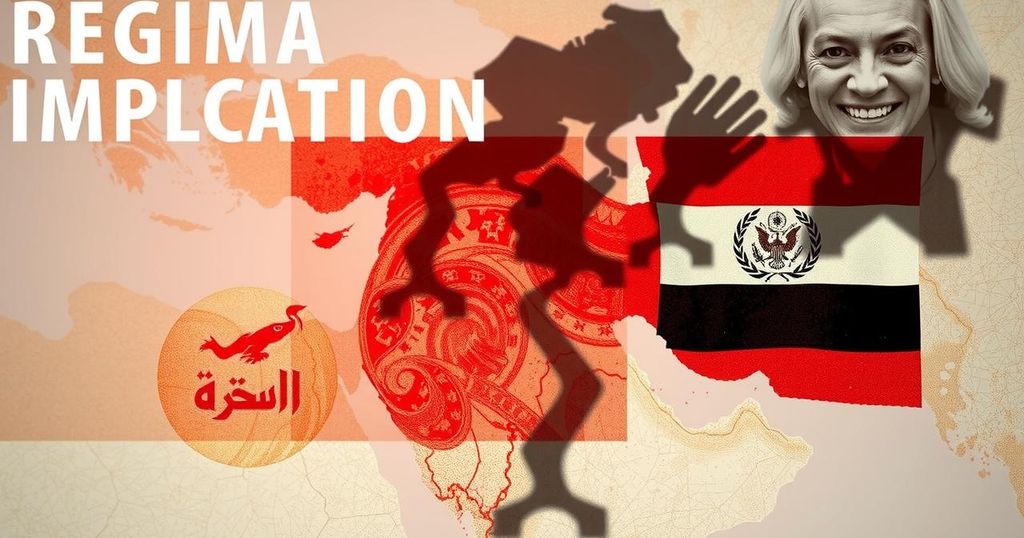Implications of Assad’s Fall: Escalating Conflict and Russian Military Presence in Libya

The fall of Bashar al-Assad’s regime in Syria has prompted Russia to bolster its military presence in Libya, potentially worsening the ongoing conflict. This strategic move could complicate efforts aimed at resolving the Libyan crisis while raising concerns about Russia’s military capabilities in supporting its allies across Africa. Prime Minister Dabaiba has expressed opposition to foreign military involvement, warning of further conflict as Russia increases its footprint in Libya.
The recent fall of Bashar al-Assad’s regime in Syria poses grave implications for Libya, as it prompts Russia to reinforce its military presence in the North African nation amidst a protracted conflict. Following the unexpected collapse of Assad, Moscow has shifted military resources from Syria to Libya, likely aiming to safeguard its strategic interests on the continent and counterbalance its losses in Syria. Russia’s military bases in Syria have served as critical supply nodes for its operations throughout Africa, creating a ripple effect that could aggravate the precarious situation in Libya.
Moscow’s establishment of a military hub in Libya concurrently heightens tensions between the rival parties in the Libyan conflict. The eastern-based General Khalifa Haftar has received significant backing from Russia in his struggle against the UN-supported Tripoli government led by Prime Minister Abdul Hamid Dabaiba. Dabaiba’s administration has voiced strong objections to Russia’s military reinforcement in Libya, foreseeing an escalation of the existing conflict as Russia entangles itself further into Libyan affairs. Throughout this time, Russian military aircraft have been noted transporting considerable military resources to Libya, indicating a deliberate strategy to bolster its foothold in the region.
The dynamics set in motion by Assad’s abrupt demise extend beyond Libya, questioning Russia’s ability to sustain its global military commitments. Analysts suggest that resources may be overstretched, undermining support to allied forces in adjacent regions such as Mali and Niger. Depending on the evolution of politics in Syria, Moscow’s military engagement in Libya may either entrench ongoing conflicts or could lead to a reassessment of its operational strategies in Africa. Thus, the geopolitical ramifications following Assad’s fall may portend a more complicated situation for Libya, with potentially lasting impacts on regional stability and security.
The article addresses the geopolitical fallout resulting from the unexpected collapse of Bashar al-Assad’s regime in Syria and its direct implications for Libya. The Syrian conflict has heavily influenced Russian military strategy across the Middle East and Africa, with Syrian bases acting as critical supply lines for operations in Libya and various other African nations. As the situation in Syria remains uncertain, Russia’s ability to project power in the region and ensure military support to its allies comes into question, leading to strategic recalibrations, particularly in Libya.
In conclusion, the demise of Assad’s regime in Syria is poised to exacerbate the already volatile situation in Libya as Russia seeks to solidify its military presence in the region. This strategic response from Moscow not only reflects its need to maintain influence but also risks perpetuating the internal conflict within Libya. The broader consequences of these developments remain unclear, particularly regarding Russia’s ability to manage its military commitments across Africa while navigating the complexities introduced by the shifting political landscape in Syria.
Original Source: issafrica.org






